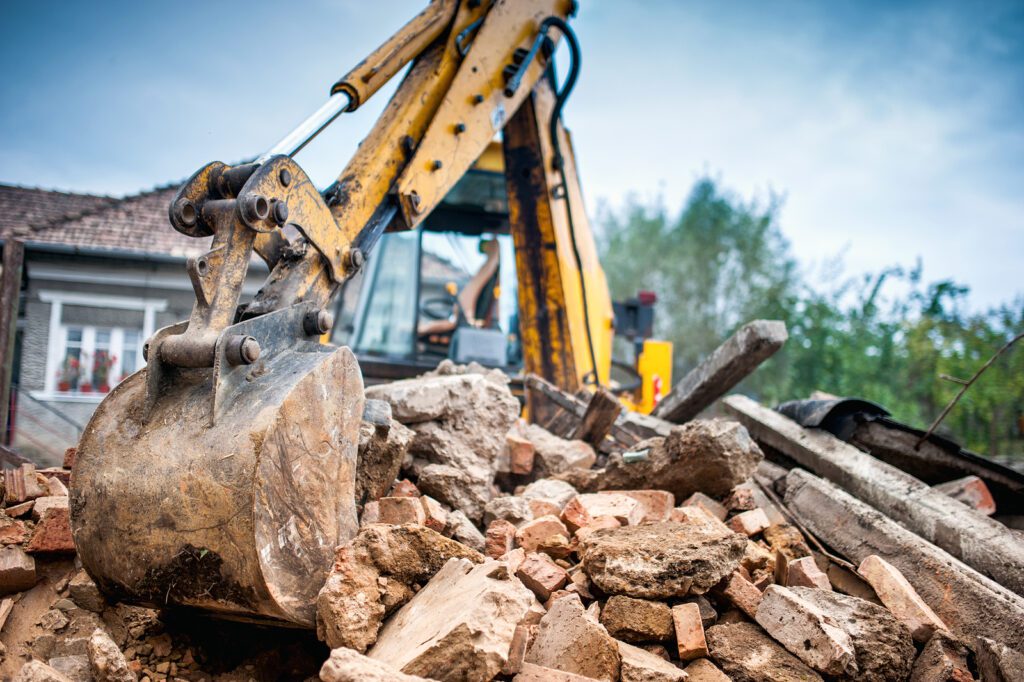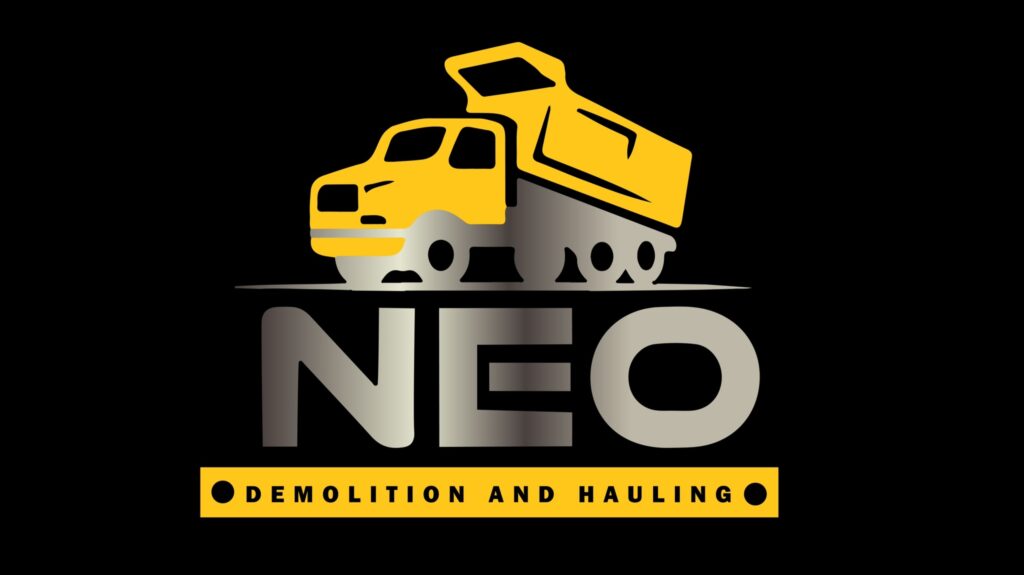Have you ever stood in front of a building, whether old or not so old, and wondered, What’s the best way to clear this space for something new? In Los Angeles, where the skyline constantly evolves, this question is more common than you might think. The answer often lies in the expertise of demolition contractors. But before you type demolition contractors near me into your search bar, let’s talk about your options.
Imagine you’re holding a complex Lego set. You could smash it to bits, or you could take it apart brick by brick. That’s the gist of demolition and deconstruction. Demolition is the fast track; it’s like knocking over your Lego tower. Deconstruction is the methodical removal of materials, like peeling away each Lego piece with care.
Now, why should you care about the difference? Well, it’s all about choosing the path that aligns with your needs, timelines, and the environment. In the bustling heart of LA, where residential demolition contractors, commercial demolition contractors, and building demolition contractors ply their trade, the decision between deconstruction and demolition isn’t just about tearing down; it’s about strategic removal with purpose.
Think about what’s best for your property. Are you looking to salvage materials, reduce environmental impact, or perhaps you’re on a tight schedule? Whatever your situation, understanding the pros and cons of each method is crucial, and that’s where we step in. Keep reading to unearth the layers of deconstruction versus demolition, ensuring you make an informed decision for your project in the City of Angels.
Los Angeles Tear-Down Tactics: Deconstruction vs. Demolition Pros and Cons
When you’re faced with a building that needs to come down, two primary methods stand out in Los Angeles: deconstruction and demolition. Each carries its own pros and cons, like two sides of a coin. Let’s delve into the characteristics of each to help you weigh your options.
Deconstruction
Think of deconstruction as the careful undoing of a structure. Interior demolition contractors often favor this approach when clients wish to reclaim or recycle parts of a building.
Pros:
- Environmental Friendliness: Deconstruction is like giving the Earth a high-five. It reduces the load on landfills since materials such as wood, metal, and glass are recycled instead of tossed away.
- Salvage Value: Ever found a dollar on the sidewalk? That’s what salvaging materials can feel like. You can save or even make money by selling reclaimed materials.
- Community Benefit: By donating salvaged items to nonprofits or local businesses, you’re not just clearing a space; you’re helping others build their dreams.
Cons:
- Time: Deconstruction is not a race; it’s more of a marathon. It takes more time than demolition since it’s done piece by piece.
- Cost: Sometimes, being eco-friendly can be more expensive upfront. Deconstruction can be costlier due to the labor-intensive process.
Demolition
Demolition is the more traditional route taken by demolition contractors los angeles. It’s the process of quickly tearing down a structure, often using heavy machinery.
Pros:
- Speed: Demolition is like hitting the fast-forward button. It’s much quicker than deconstruction, making it suitable for tight deadlines.
- Cost-Effectiveness: In the short term, demolition can be less of a hit to your wallet because it requires less labor and time.
Cons:
- Waste: The downside of quick and easy is that more materials end up in landfills. Think of demolition as a one-way ticket for building materials—they don’t come back.
- Salvage Loss: It’s the missed opportunity of the tear-down world. With demolition, there’s little to no chance of reclaiming materials for reuse or resale.
Whether you’re looking for residential demolition contractors or commercial demolition contractors in Los Angeles, the choice between deconstruction and demolition boils down to your priorities. Are you looking to save time and money now or invest in a more sustainable, resource-conscious process that might pay back over time?
Remember, each project is unique, and what works for one might not be the best for another. Consider your timeline, budget, environmental impact, and the potential for salvaging materials when deciding on the right tactic for your LA property tear-down.

Making the Right Call: Evaluating Deconstruction and Demolition in LA
Choosing between deconstruction and demolition is a critical decision for property owners in Los Angeles. This choice affects not just your immediate plans, but it also has long-term implications for your wallet and the environment. Here’s how you can evaluate both options to make the right call for your situation.
Assessing Your Needs
First, consider what you want from the teardown. Are you planning a complete rebuild, or is there a sentimental or historical aspect of the structure you wish to preserve? Residential demolition contractors will often recommend deconstruction if there’s a desire to retain certain elements of a home. For commercial projects, where time is often equated with money, commercial demolition contractors might suggest demolition as the go-to method.
Understanding Local Regulations
Los Angeles is known for its strict regulations, especially when it comes to construction and renovation. Certain areas might have rules favoring deconstruction due to its environmental benefits. It’s essential to understand these regulations before making a decision, as compliance can affect your project’s timeline and cost.
Considering Environmental Impact
In an eco-conscious city like LA, the environmental impact of your project can’t be ignored. Deconstruction significantly reduces the amount of waste sent to landfills and can contribute positively to your brand’s image. If you’re leaning towards demolition, consider working with contractors who prioritize recycling demolished materials.
Calculating Costs
While deconstruction might seem more expensive initially, there’s potential for cost recovery through the sale of salvaged materials. Demolition may have lower upfront costs, but you miss out on any salvage revenue. Get detailed quotes from both interior demolition contractors and building demolition contractors to understand the full financial picture.
Time Constraints
How soon do you need the job done? If you’re on a tight schedule, demolition is likely the faster option. Deconstruction requires a more meticulous approach, which translates to a longer project timeline.
Choosing the Right Contractor
Whether you search for “demolition contractors near me” or specific “interior demolition contractors,” finding the right team is crucial. They should not only understand your needs but also have a proven track record in the type of demolition or deconstruction you’re considering.
Making the Decision
After weighing the pros and cons and aligning them with your project goals, the choice should become clearer. Remember, the right call is the one that balances your needs with the broader impact on the community and the environment. In the vibrant and ever-changing landscape of Los Angeles, your decision can contribute to the city’s evolution, whether you opt for the deliberate process of deconstruction or the swift action of demolition.
Eco-Friendly vs. Expediency: Assessing Deconstruction and Demolition Options in Los Angeles
In the heart of LA, property developments and renovations are a daily occurrence. Yet, with the rising trend of environmental consciousness, property owners are often caught in a dilemma between eco-friendly deconstruction and time-saving demolition. Let’s break down these options to better understand their place in the bustling city of Los Angeles.
The Green Path of Deconstruction
Deconstruction stands out as the champion of eco-friendliness. By dismantling a building piece by piece, materials are preserved, leading to a significant reduction in waste. It’s like giving each piece of the building a second life, which can help reduce the carbon footprint of your project.
Pros:
- Sustainability: In a city that’s looking to the future, deconstruction aligns with green initiatives and sustainability goals.
- Job Creation: This labor-intensive process can create more job opportunities, which is always a plus in the local economy.
- Tax Benefits: Often overlooked, there can be tax incentives for donating salvaged materials, which can sweeten the deconstruction proposition.
Cons:
- Slower Process: Deconstruction can be akin to a slow dance, meticulous but time-consuming, which might not appeal to those on a tight schedule.
The Fast Lane of Demolition
Demolition is the go-to for speed and efficiency. It’s the construction equivalent of a quick clean slate, making way for new developments in a fraction of the time it takes to deconstruct.
Pros:
- Quick Turnaround: For projects on a fast track, demolition clears the way swiftly, allowing construction to commence sooner.
- Lower Initial Costs: With less labor and time, demolition can often be the more budget-friendly option upfront.
Cons:
- Higher Waste: The rubble from demolition is less likely to be reused, leading to more material heading for the landfill.
- Lost Material Value: Potential profits from the sale of salvaged materials are forfeited in the demolition process.
Weighing Your Options in LA
The choice between deconstruction and demolition often comes down to a balance between eco-friendliness and expediency. In a city like Los Angeles, where both environmental impact and quick development are high priorities, this decision becomes even more nuanced.
Property owners must assess the importance of time against the potential for sustainability and community benefits. While deconstruction might take longer and cost more initially, the long-term benefits—both environmentally and financially—can be significant. On the flip side, demolition provides a straightforward, faster route to development, but with environmental trade-offs.
Ultimately, assessing deconstruction and demolition options in Los Angeles requires a thoughtful approach that considers the immediate needs of your project alongside the long-term implications for the city and the planet. Whether you lean towards the green appeal of deconstruction or the swift efficiency of demolition, the choice you make will have a lasting impact on the landscape of Los Angeles.
Conclusion
When it comes to reshaping the Los Angeles landscape, the choice between deconstruction and demolition is more than a matter of tearing down walls; it’s about building futures. Whether you’re motivated by the eco-conscious ethos of deconstruction or the swift pace of demolition, your decision has a profound impact on the community and the environment.
At Neo Demolition, we understand the weight of this decision. We’re committed to providing our clients with the knowledge and services necessary to make the best choice for their unique situations. Our team of skilled professionals is equipped to handle the complexities of both deconstruction and demolition, ensuring that your project advances with expertise and care. When you’re ready to turn the page and start a new chapter on your property, trust Neo Demolition to be the partner that helps you build it from the ground up—or take it down with precision.
Frequently Asked Questions
What’s the main difference between deconstruction and demolition?
Deconstruction is a method where a structure is carefully dismantled, usually with the goal of salvaging materials for reuse. Demolition is the process of quickly tearing down a building, typically with machinery, and is focused on speed and efficiency.
Is deconstruction more expensive than demolition?
Initially, yes. Deconstruction can be more costly due to its labor-intensive nature. However, you may offset some expenses through the sale of salvaged materials or potential tax benefits.
How long does deconstruction take compared to demolition?
Deconstruction takes longer because it’s a careful, piece-by-piece process, whereas demolition is a faster way to clear a site, often completed in a matter of days or weeks, depending on the structure’s size.
Can demolition be eco-friendly?
While demolition is typically less eco-friendly than deconstruction due to the amount of waste generated, efforts can be made to recycle materials from the demolished structure to improve its environmental impact.
Do I need a permit for demolition or deconstruction in Los Angeles?
Yes, both processes typically require permits. The specific requirements can vary based on the project’s scope and location, so it’s essential to check with local authorities before proceeding.

